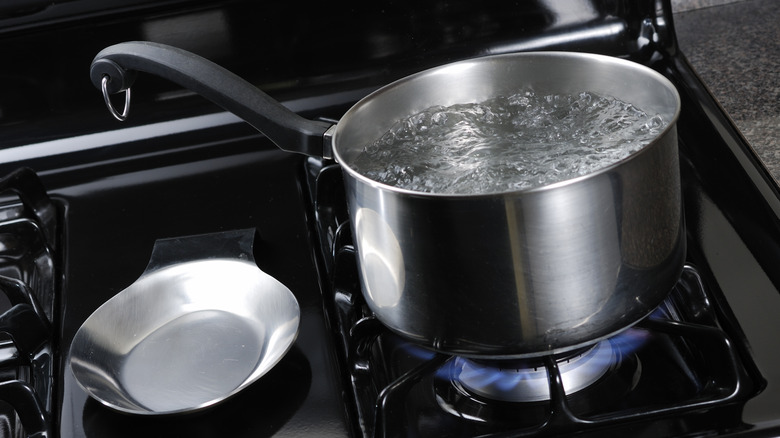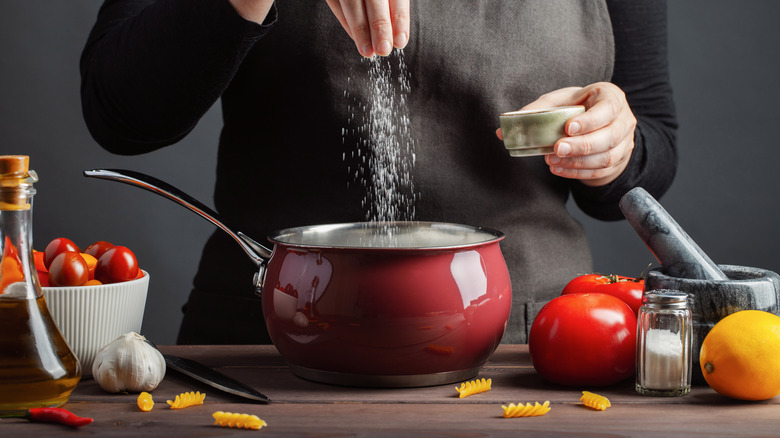The Ice Cube Hack That Stops Water From Boiling Over Like Magic
We've all found ourselves in the kitchen, absentmindedly boiling water, when said water starts to boil over the rim of the pot. In most cases, simply turning down the burner's temperature will remedy the problem, but even those few seconds it takes to readjust can leave you with a mess.
Fortunately, you can stop boiling over water in its tracks by dropping in an ice cube. As you can imagine, the ice cube cools the surrounding water, causing it to either stop boiling or at least boil less aggressively. In other words, adding ice lowers the water's temperature from its boiling point, and much more quickly than you could by turning the burner down a notch.
Long story short, water is highly resistant to changes in temperature, and it takes a lot of energy (not to mention time) to make a perceivable change. Dropping in an ice cube just so happens to help the water cool ever so slightly below its boiling point.
Fight the boil-over effect by bursting those bubbles
Whether you don't keep ice cubes on hand, or you don't have time to grab one from the freezer when your water is boiling over, we've got an alternative solution. The most common version involves keeping the boiling bubbles at bay with a wooden spoon laid across the top of the pot.
The wood not only absorbs some heat from the water (much as the ice cube did in the aforementioned method), but it also breaks the bubbles' surface tension, causing them to pop. Keep in mind that you must use a wooden spoon, as a metal one will heat up too quickly, but too high of temperatures can cause the wood to burn.
On a similar note, coating the rim of your pot with butter can also prevent water from boiling over. Much like the spoon, the butter weakens the surface tension of the bubbles, hastening their popping. As such, the bubbles can't build up to the point of boiling over.
Adjust your cooking routine to altogether avoid water boiling over
Though it's a good idea to have tried-and-true solutions on hand in case your pot of water unexpectedly boils over, you can also make adjustments beforehand that will decrease the chances of you needing those quick fixes.
For instance, use a pot that's slightly larger than you think is necessary. This allows the boiling water space to bubble without spilling over. Using less water accomplishes the same purpose (and you can always add more water once you've reached a boil). On a similar note, adding a dash of salt before boiling can help speed up the heating process while also raising the water's boiling point. This essentially means creating a tamer boil.
Alternatively, you can lower the burner temperature once your water is boiling to discourage excessive foaming — or just keep the temperature lower from the start. It may take longer to reach a boil, but it's much less likely you'll have to worry about the water boiling over and making a mess on your stove.



